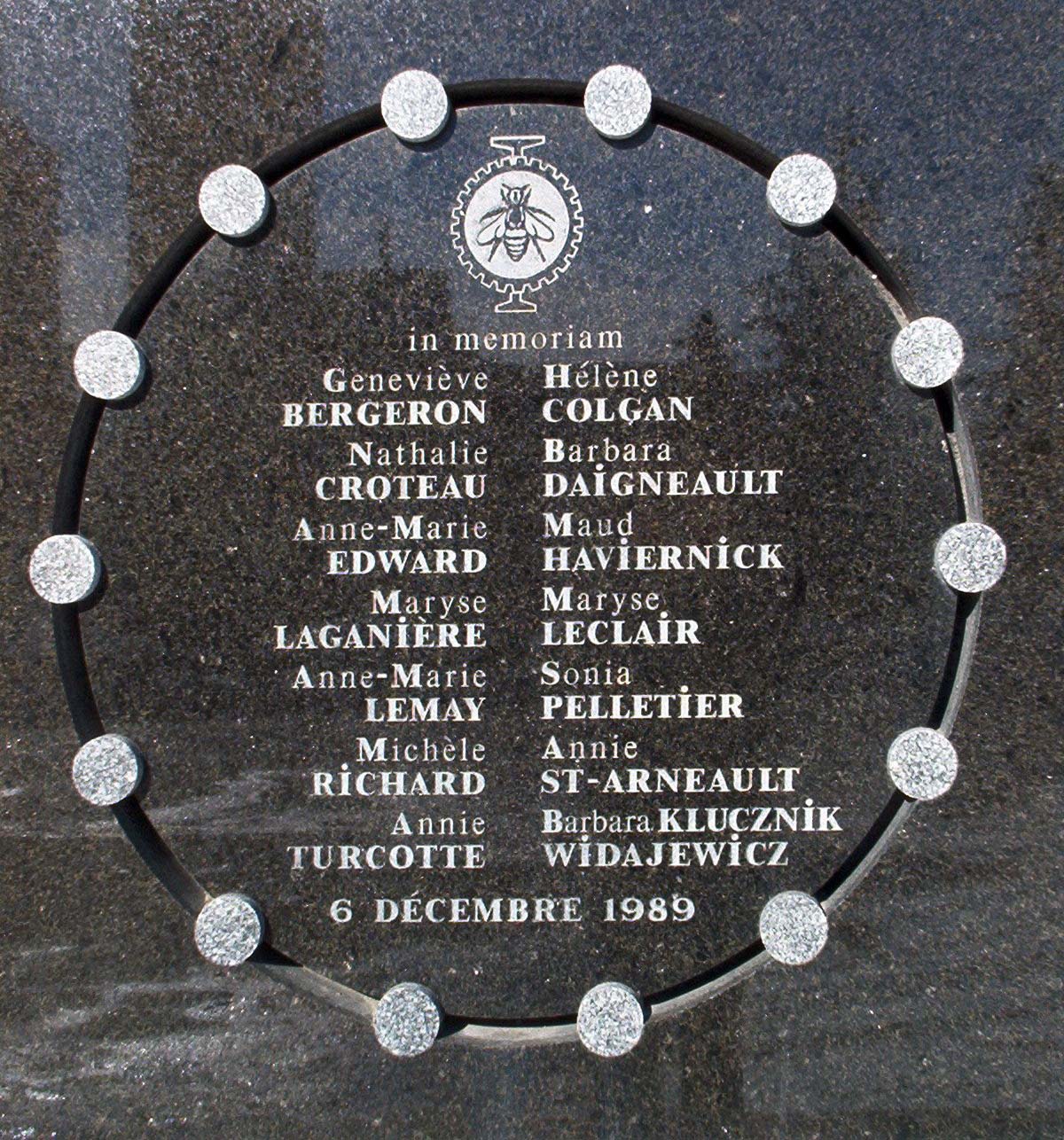École Polytechnique massacre
 The massacre (), also known as the Montreal massacre, was an antifeminist mass shooting that occurred on December 6, 1989, at the in Montreal, Quebec, Canada. Fourteen women were murdered; another ten women and four men were injured.
The perpetrator was 25-year-old Marc Lépine, armed with a legally obtained Ruger Mini-14, 30-round high-capacity magazines, and a hunting knife. He began his rampage at a mechanical engineering class at the , where he separated the male and female students, ordering the men to leave. He shot all nine women in the room, killing six. For nearly 20 minutes the shooter moved through corridors on multiple floors of the building, the cafeteria, and another classroom, targeting women. He wounded more students and killed eight more women before fatally shooting himself.
The massacre (), also known as the Montreal massacre, was an antifeminist mass shooting that occurred on December 6, 1989, at the in Montreal, Quebec, Canada. Fourteen women were murdered; another ten women and four men were injured.
The perpetrator was 25-year-old Marc Lépine, armed with a legally obtained Ruger Mini-14, 30-round high-capacity magazines, and a hunting knife. He began his rampage at a mechanical engineering class at the , where he separated the male and female students, ordering the men to leave. He shot all nine women in the room, killing six. For nearly 20 minutes the shooter moved through corridors on multiple floors of the building, the cafeteria, and another classroom, targeting women. He wounded more students and killed eight more women before fatally shooting himself. The massacre is now widely regarded as an act of misogynist terrorism and representative of wider societal violence against women. The anniversary of the massacre is commemorated annually in Canada as the National Day of Remembrance and Action on Violence Against Women. The gunman had said he was against feminism; after the attack, Canadians debated various interpretations of the events, their significance, and the shooter's motives. Some interpretations noted that the shooter had been abused as a child, or suggested that the massacre was the isolated act of a madman, unrelated to larger social issues.
Politicians in the House of Commons responded by passing more stringent gun control laws, and officials took other actions to end violence against women. The massacre also led to policy changes in emergency services protocols to shootings; for instance, that police would intervene immediately to try to reduce casualties. These changes were credited with later minimizing casualties during incidents of shooting in Montreal and elsewhere. This was the deadliest mass shooting in Canada until attacks in Nova Scotia more than 30 years later, which resulted in twenty-two deaths. Provided by Wikipedia